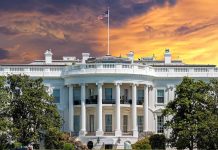
When your own party leaves you out to dry, where do you turn? Three Democrat senators from pivotal swing states find themselves grappling with this very question.
At a Glance
- Senators from swing states skipping the DNC to focus on local issues.
- Their strategy highlights a disconnect with the national party.
- Concerns among constituents forcing a divide between local and national agendas.
- Their decision may impact the Democrat party’s cohesion and future elections.
Local Priorities Over National Stage
The choice by these three Democrat senators to skip the Democratic National Committee (DNC) gathering and instead focus on local issues speaks volumes. In states like Ohio, Nevada, and Arizona, where political lines blur between Republicans and Democrats, prioritizing local issues becomes critical.
These senators aim to prove their loyalty by remaining rooted in their constituents’ concerns rather than aligning themselves with the broader, sometimes divisive, national platform.
Senators like Sherrod Brown of Ohio know they walk a tightrope. His constituents have expressed displeasure with the national party’s stance on matters like immigration and economic policy. Brown is seeking a fourth term in office against Republican businessman Bernie Moreno in one of the country’s most competitive Senate races.
“Sherrod Brown votes with Biden and Harris nearly 100% of the time for open borders, a plummeting economy and a war on American energy, and that record is toxic in Ohio,” Moreno spokesperson Reagan McCarthy said. “In the toughest reelection of his 50-year political career, Sherrod is running scared of his record of voting with this disastrous administration.”
Senate's most endangered Dems to skip DNC in Chicago https://t.co/he3p058C9t
— Axios (@axios) August 15, 2024
Discrepancies Between Local Views and National Policies
Ruben Gallego from Arizona and Jacky Rosen from Nevada are experiencing similar pressures. Despite their growing leads against their Republican opponents, they recognize the importance of separating themselves from some of the national party’s less popular stances. Gallego’s recent polling numbers increased from a 5-point to a 9-point lead over Republican candidate Kari Lake, reflecting that local concerns still hold significant weight.
The Cook Political Report’s shift of the Nevada Senate race from “toss-up” to “lean Democrat” suggests an increasing local support for Rosen, bolstered by her commitment to focus on state rather than national issues. This shift could be attributed to her deliberate distancing from contentious national topics, reaffirming a more localized campaign strategy.
Larger Implications for the Democratic Party
This strategic shift isn’t just about winning reelection in swing states; it signals broader issues within the Democratic Party. The contrast between national and local priorities demonstrates a misalignment that could prove problematic in future elections. Vice President Harris’s rise may have consolidated some support, as reflected in improved polling numbers in Pennsylvania and Michigan, but it also underscores the importance of local connections.
A Double-Edged Sword
With Harris facing immense electoral challenges, the decision of these senators to prioritize local issues might come across as a necessary move. However, it also highlights a disturbing rift within the party, which may prove detrimental in the long run.
Biden’s campaign finances are reportedly in decline, and major donors are withdrawing support. As NBC News reported, “Biden has alienated swing state voters,” which could have broader repercussions if not addressed appropriately.
In conclusion, the decision by these Democratic senators to skip the DNC is part tactical, part symbolic. While intended to reassure local constituents, it exposes broader fissures within the Democratic Party’s inability to reconcile national and local priorities. And as history shows, ignoring these cracks could lead to larger electoral earthquakes down the road.






















